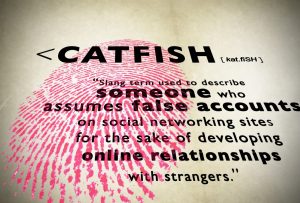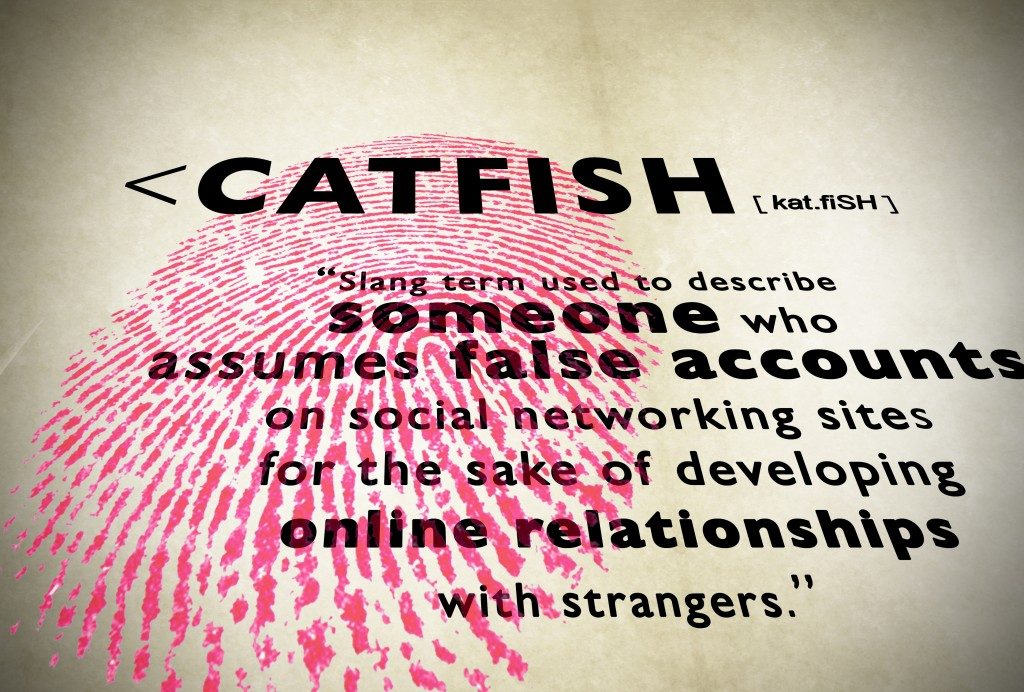 Online dating no longer seems like a reckless activity; in fact, the Pew Research Center reveals that 15% of U.S. adults use mobile dating apps or online dating sites. Nearly half of the public knows a friend or family member depending on the Internet for romance. While some still consider online dating as a last ditch effort, majority of the public accepts the practice wholeheartedly.
Online dating no longer seems like a reckless activity; in fact, the Pew Research Center reveals that 15% of U.S. adults use mobile dating apps or online dating sites. Nearly half of the public knows a friend or family member depending on the Internet for romance. While some still consider online dating as a last ditch effort, majority of the public accepts the practice wholeheartedly.
Dating online makes meeting people easier for those who wish to find love. But with this new social strategy, how can you be sure of a person’s identity?
What if they’re a “catfish?”
Catfish: Impersonation Online
The term “catfish” originated from a documentary film turned MTV series of the same name. It describes a person who intentionally deceives others for romance or other relationships. In most cases, it involves creating a fake social media profile that comes with fictitious biographies, photos, and supporting networks.
Most catfishers will extend the relationship through phone calls and other forms of non-physical contact — anything to prevent their victim from discovering their true identity.
It might seem harmless, but catfishing is a dangerous form of identity theft.
The Dangers Involved
David A. Nachtigall, Attorney at Law, PLLC says online impersonation falls under the 33rd chapter of the Texas Penal Code; a case can fall under class A misdemeanor to a third degree felony if someone sends an e-mail or uses social media to pretend to be someone else for fraudulent or other harmful reasons.
Emotionally, it can also damage a person. Victims invest time, resources, and emotions on the person they believe they are talking to. It can be devastating for victims when they realize the person they love does not exist.
It is also a form personal and public embarrassment. Some victims share their “relationships” with close friends and family members. Football player Manti Te’o can attest to this complex deception.
Depending on the circumstances of the case, victims could sue people involved in the catfishing scheme. But to avoid these dangers, it’s important to remain vigilant — even in the face of online love.
